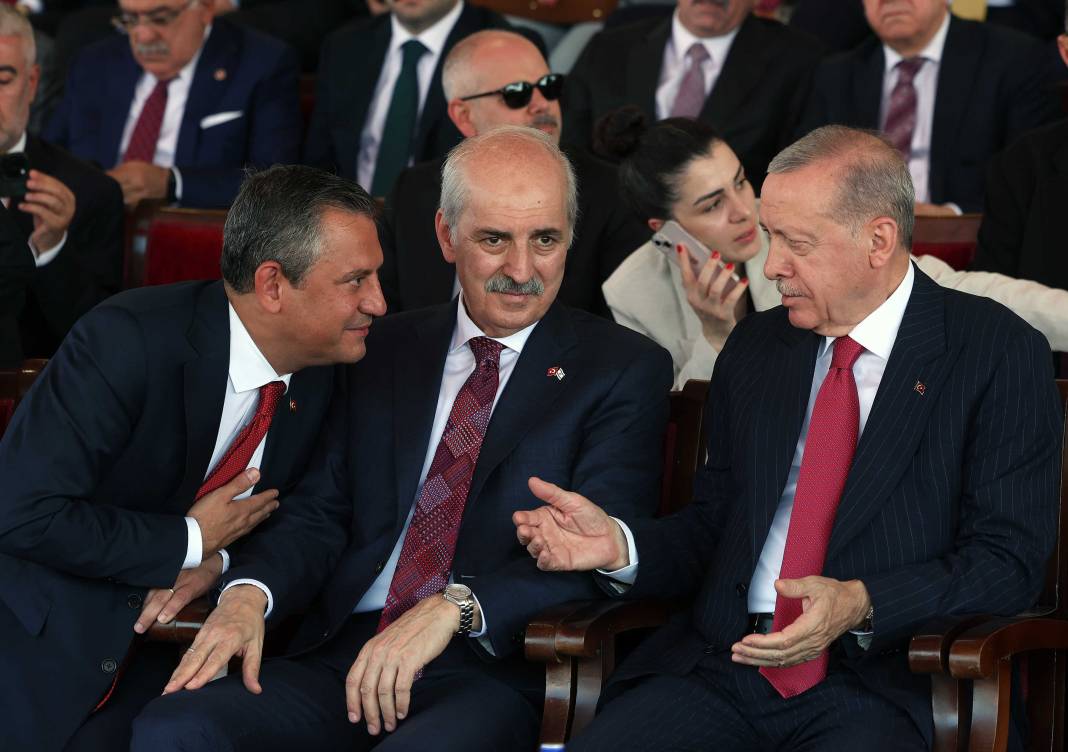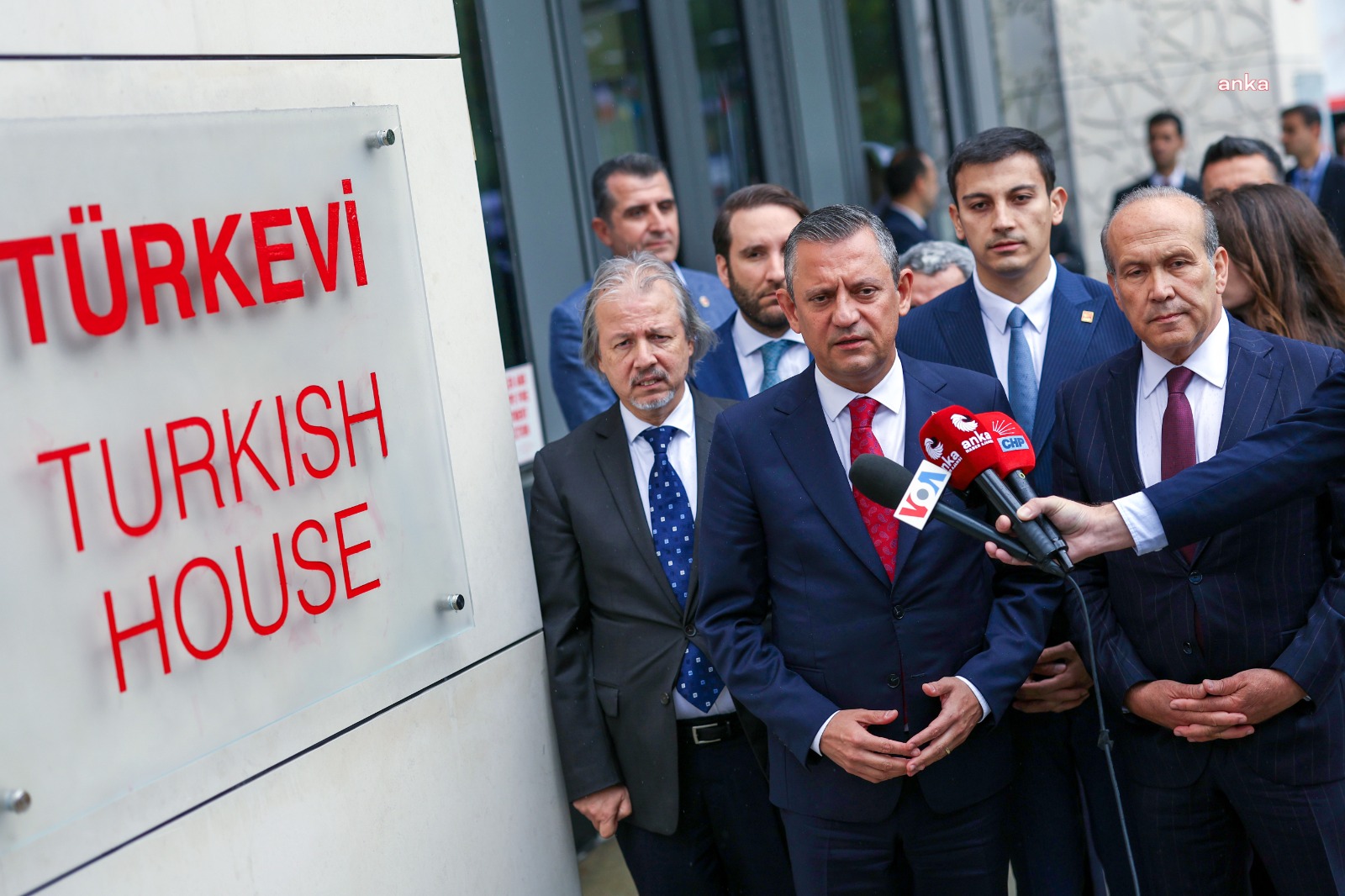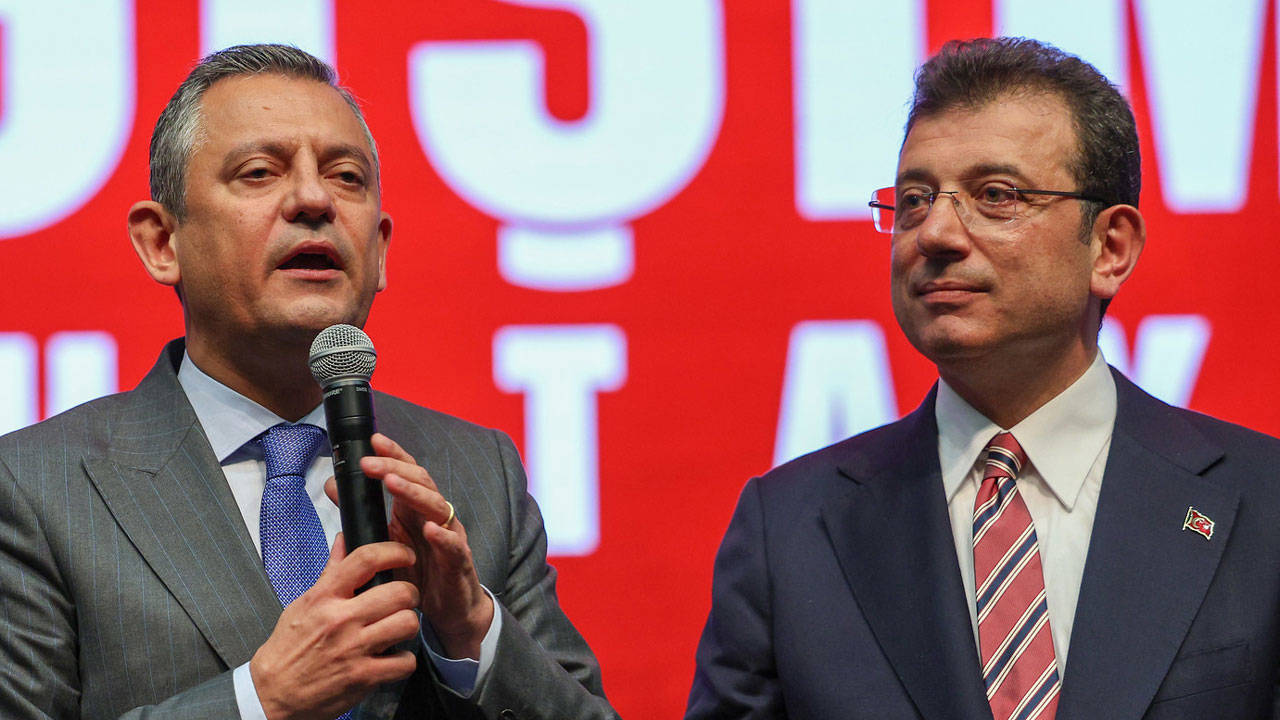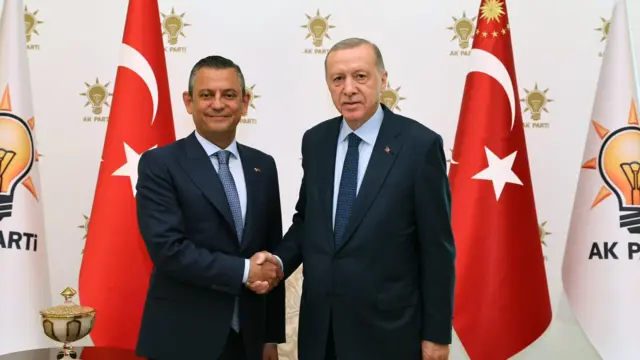Levent Kenez/Stockholm
In the local elections held on March 31, 2024, Turkey’s main opposition party, the Republican People’s Party (CHP), achieved an unexpected victory, securing 37.76% of the vote and becoming the leading political force. For the first time since its founding in 2001, President Recep Tayyip Erdogan’s ruling Justice and Development Party (AKP) found itself relegated to second place in a national election.
The AKP suffered a significant loss of prestige, primarily due to the country’s worsening economic conditions, Erdogan’s threats that regions not voting for his party would face a lack of central government support and the CHP’s strategic decision to field strong candidates in key metropolitan areas. Despite Erdogan’s re-election as president in May 2023, less than a year later, the public delivered a resounding vote of no confidence.
However, despite becoming Turkey’s leading political party, the CHP fails to inspire confidence among its supporters that it will seize power in the next general elections. This is largely due to party leader Özgür Özel’s political approach following the local elections, an approach that appears to pose little challenge to Erdogan’s government.
Özel’s efforts to maintain dialogue with Erdogan and his willingness to operate within the red lines of his authoritarian regime have raised eyebrows. His stance during critical moments often seems to extend beyond mere compromise, drawing criticism for appearing to offer tacit support to the ruling administration.
After the local elections, Özel stated that his first promise was to meet with President Erdogan. He justified this by citing the extreme polarization in Turkey, which he claimed was detrimental to the CHP. Özel even mentioned that he would not hesitate to accept an invitation to Erdogan’s presidential palace, although he preferred the meeting to take place at the AKP headquarters.
The presidential palace, previously protested by the CHP as a symbol of extravagance, has been a contentious location. Fortunately for Özel, Erdogan avoided creating further controversy and scheduled the meeting to take place at the AKP headquarters. However, during the meeting, Erdogan reportedly placed an empty chair next to Özel, a move interpreted by some as a deliberate gesture to humiliate him, breaching typical protocol norms.

Following the meeting on May 2, Özel addressed the press, stating, “During my discussion with the president, I presented a file regarding foreign relations. I also told him, ‘Before I travel abroad, I need a briefing from the Foreign Ministry. I need to understand the state of our relations with the country I am visiting and what I am expected to do.’ For instance, we are unaware of Turkey’s current position on the Cyprus issue because briefings are no longer provided as they used to be. Upon returning, we should also be able to report back.”
Özel also disclosed Erdogan’s response, quoting the president as saying, “In such matters, and even more broadly, our ministers of defense, interior, and foreign affairs, can brief the CHP chairman whenever needed and ensure coordination for these interactions.” Özel characterized this arrangement as “an important step forward.”
The briefing notes provided to Özel must have been effective, as evidenced by his response to a journalist’s question during his visit to New York on Sept. 27 for a meeting of the Socialist International, a worldwide organization of leftist and social-democratic political parties.
When asked about an international initiative that involves approximately 25 countries taking action against human rights violations committed by the Taliban in Afghanistan, and noting that apart from Morocco, no Muslim-majority countries were included on the list, Özel’s reply was succinct and clear: “As the Republican People’s Party, we follow the line set by our Ministry of Foreign Affairs and its representatives here.”
During the same trip, a significant development unfolded regarding New York City Mayor Eric Adams. A 57-page indictment was filed against Adams, accusing him of various crimes, including corruption, bribery and receiving illegal contributions from foreign entities. A large portion of the indictment focused on Adams’s network of relationships with pro-Erdogan Turkish businessmen and certain Turkish government officials in the United States. One of the allegations concerned bribery and misconduct related to obtaining a fire safety permit for the operation of the Turkish House (Türkevi), a newly constructed Turkish state-owned building in New York.
After visiting the Turkish House, Özgür Özel made remarks about the allegations that even the ruling party in Turkey might not have ventured to make. He stated:
“Turkey is not a country that needs to resort to bribery, nor is it in such a position of weakness. I consider such actions to be unbecoming of anyone representing the Republic of Turkey. I would not place any credibility on these claims. If we see any gestures in the process of establishing such a magnificent building, which all of us take pride in, we must remember that Turkey has done even more for the stunning area allocated to the US Embassy in Ankara. This isn’t something that can be measured in monetary terms. Strong allied relations naturally entail such gestures.”

Özel’s increasing cooperation with institutions tied to Erdogan’s regime reached a new peak with his recent engagement with Turkey’s National Intelligence Organization (MİT). On Oct. 21, reports emerged in Turkish media revealing that MİT chief İbrahim Kalın had provided a briefing to AKP officials at the party’s headquarters — a first in Turkey’s history. While many expected Özel to denounce MİT’s involvement in politics and its alignment with the ruling party, he instead expressed satisfaction at the prospect of MİT offering similar briefings to the CHP.
This reaction was particularly notable given MİT’s central role in Erdogan’s authoritarian governance. The agency is a key tool in Erdogan’s strategy to suppress opposition and shape policy, particularly toward dissenters. On Nov. 20, Kalın and his team visited the CHP headquarters to deliver a presentation covering topics ranging from terrorism to foreign relations.
After the meeting, Özel commented: “MİT coming to the CHP, providing a presentation and answering our questions is valuable in itself, regardless of the content. I consider this an important development. During our discussions, we requested intelligence support from MİT to prevent terrorist organizations from infiltrating our membership recruitment processes. This is especially critical as we plan to establish CHP offices in numerous US states and in Germany, where there are significant risks. MİT officials responded very positively, saying they would gladly assist us. This was one of the productive outcomes of our meeting.”
The revelation that individuals wishing to join the CHP would have their names submitted to MİT for approval, and only those cleared by the intelligence agency would be allowed to become members, caused significant unrest among CHP members living abroad. A group of CHP members in the United States sent a letter to Özgür Özel protesting this collaboration with MİT. Meanwhile, a group of CHP members in Europe issued a public statement calling for Özel’s resignation over the issue.
Özgür Özel’s support for the ruling party is not limited to foreign policy. The Constitution requires the parliament to pass an early election decision for Erdogan to be eligible to run again in the upcoming election. However, the AKP and its allies do not have the majority in Parliament to make such a decision. Despite this, Özel frequently speaks as if Erdogan is already a presidential candidate, regularly discussing various potential election dates in his public statements.
Özgür Özel also does not hesitate to use the language of the ruling party when addressing groups that the government considers opposition, including segments that traditionally have a potential to vote for the CHP in the elections. Regarding the approximately 150,000 individuals dismissed from their jobs by the state after the controversial 2016 coup attempt, Özel echoes the same rhetoric as Erdogan, arguing that these people should not be reinstated.
Furthermore, Özel has remained silent on human rights violations committed against groups critical of Erdogan, such as those against members of the Gülen movement, continuing to support ongoing mass detentions and the decisions of courts under Erdogan’s control. This is despite repeated violations recognized by the European Court of Human Rights.
One of the main points of criticism from party members against Özel is his failure to adequately fight the four-year political ban imposed on Ekrem İmamoglu, the mayor of Istanbul and a potential CHP presidential candidate, following his trial regarding a comment calling members of the Supreme Election Council “idiots” in 2019. While Özel had previously advocated for the release of certain former generals who were imprisoned, successfully securing their release with Erdogan’s approval, his handling of the İmamoglu case has raised concerns within the party.
Özel has expressed that he does not wish for the court’s decision to be upheld by the appellate court, but at the same time, he suggested that if the ban is confirmed, it could actually work in the CHP’s favor. According to Özel, voters would likely respond to the decision by showing even stronger support for a CHP candidate. This perspective, however, has been met with frustration from party members who believe that Özel’s response to the issue has been insufficient and that he has not put up enough of a fight to defend İmamoglu’s right to run.

Last week, Özel commented on the actions of CHP lawmakers during the budget discussions in Parliament when Interior Minister Ali Yerlikaya arrived. CHP members protested the appointment of a trustee to the Esenyurt Municipality and the arrest of its mayor as well as the denial of access to the municipal building for CHP deputies, briefly blocking Yerlikaya’s entrance to the chamber.
Özel, however, did not approve of these actions. He stated that he did not support the behavior of the CHP deputies who physically obstructed Yerlikaya’s entry. During the incident, Yerlikaya’s bodyguards shoved some CHP lawmakers and Yerlikaya himself also had an altercation with deputies, pushing them away. Özel emphasized that such conduct was not in line with the party’s principles, despite the reasons for the protest, signaling a more restrained approach to protest within the political framework.
Özgür Özel, a 50-year-old pharmacist, served as the deputy leader of the CHP parliamentary group between 2015 and 2023. While he was known as an aggressive opposition figure in Parliament, it is difficult to make the same assessment regarding his potential for CHP leadership. Politically astute, Erdogan has successfully brought several key opposition leaders into his fold in the past, sometimes through financial promises or by inviting them to join his party. Whether Özel will be one of those leaders remains to be seen.












